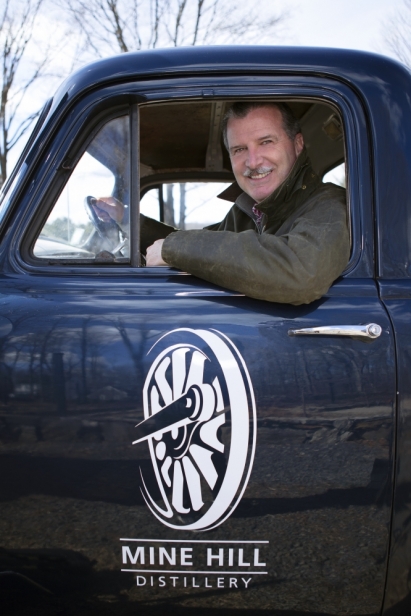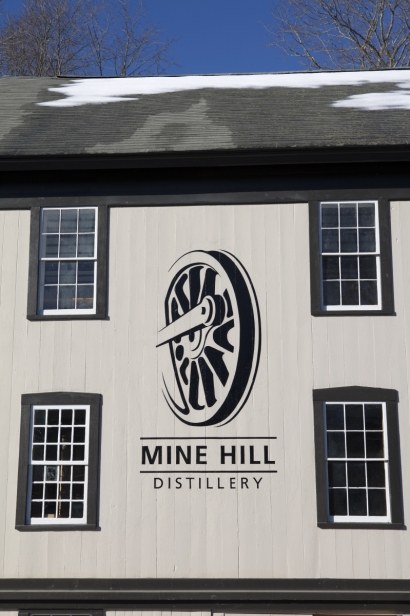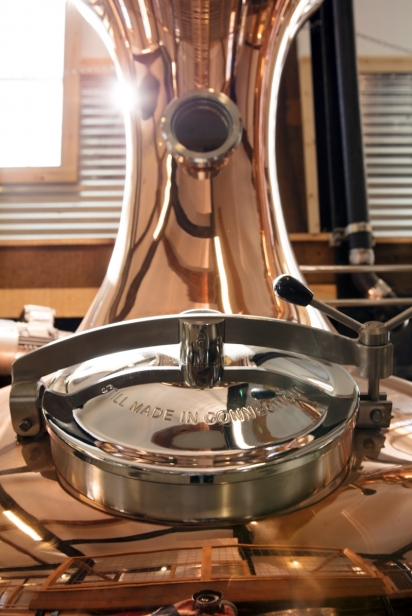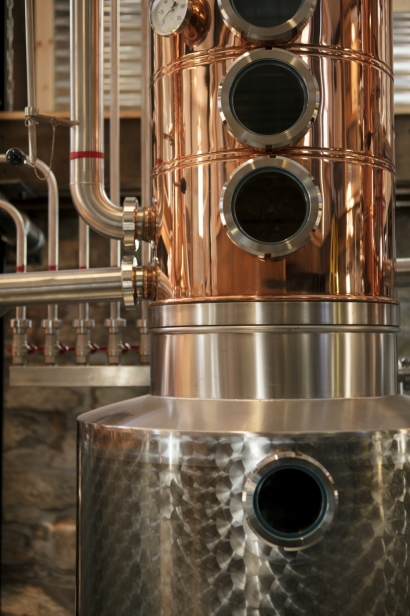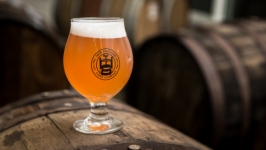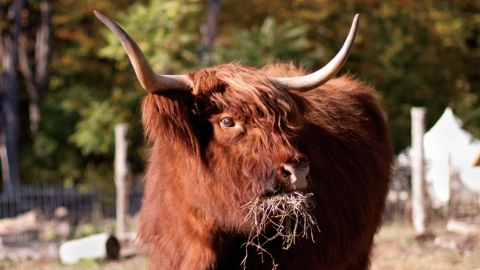Mine Hill Distillery: Still Made in Connecticut
Proof was a measure originally used in 16th-century England to determine if rum genuinely had a sufficient level of alcohol. Derived from that, the term proof positive became associated with definitive authenticity. Much closer to home, the emergence of Mine Hill Distillery in Roxbury is proof positive of the spirit of local resident Elliott Davis, venture capitalist, farmer, and now craft distiller.
Although Davis is currently a resident of rural Litchfield County, his early career was decidedly more urban, during which he lived in New York, Los Angeles, and San Francisco. In 1999 he decided to “turn over a new leaf,” founding the aptly named New Leaf Farm on his property in Washington, Connecticut, raising Icelandic sheep, chickens, and bees, and producing maple syrup. The farm was a way of reconnecting with the land and raising his two children in a way that developed responsibility early through chores and farm duties.
In 2015, Davis had a vision to restore the Roxbury Station property, in what was once the center of the Industrial Revolution in Roxbury, and turn it into a craft distillery. In the 19th-century, the quarries at nearby Mine Hill produced high-grade iron ore and steel was smelted on site. With the coming of the Shepaug Railroad into the station, the granite quarry was able to supply stone to locations as far away as Grand Central Station and the Brooklyn Bridge. Local farms grew corn and grains that also moved through the terminal, and tobacco was a regional cash crop that was rolled into cigars on-site in the adjacent factory.
The many years since then have seen Roxbury Station fall into disuse and disrepair, but over the last two years Davis employed numerous local craftsmen to return the exteriors to their original 19th-century look, while bringing a 21st-century aesthetic to the interiors. As with his previous venture, the distillery is again a family affair. His teenage son worked with the carpenters to reclaim the 150-year-old floorboards that are now back in the Station and his daughter designed three outdoor sculptures for the site.
Contributing to the community is also a fundamental tenet of the Mine Hill project. Davis approached the project as a partnership with the town of Roxbury. “I couldn’t have rescued Roxbury Station and navigated the approval process, done the historic research, or completed the restoration without the leadership and support of the town.” As a testament to that endeavor, the property won the 2017 Award of Merit from the Connecticut Trust for Historic Preservation.
Mine Hill Distillery’s slogan is “Still Made in Connecticut,” a double entendre that reflects their commitment to keeping production local. “It’s authentic,” Davis says, “and the care and craftsmanship that we put into the restoration will be the same as what we put in the bottle. People naturally want to know as much about where their drink comes from as the food they eat. I think they appreciate a connection to the makers and the knowledge that through their purchase they are helping the local community.”
Mine Hill’s impact on that local community has already begun to ripple outward. In 2015, Davis transferred one of the property’s buildings to the Roxbury Land Trust for their new headquarters, and this summer hosted the 50th anniversary of the local Ambulance Association as the first event in the newly completed Station. Mine Hill may also be the first craft distillery to have an artist-in-residence program; two artists have already come up from Brooklyn and lived across the street above the old General Store. Davis also has plans for a gallery to showcase craftsmen still making things in Connecticut and he wants to develop a music and dance program at the distillery for next summer. Davis hopes local farmers will also be the beneficiaries of new demand for premium grain crops, such as rye, barley, and winter wheat, and he has committed to give the spent grain left after distillation to farms as cattle feed or high-quality compost. Thus, the farmer inside the businessman comes full circle.
Elliott takes no offense at being called a gentleman farmer, quipping that from day to day he may be more of one or less of the other. Farmers are inherently cooperative, perhaps because they share a set of common challenges in mother nature. They take the long view, also a useful attitude for a venture capitalist who will shortly begin producing vodka and gin, but whose thirsty admirers will have to wait much longer for the bourbons and ryes that are soon to be laid down for years of barrel aging next to the Shepaug River.
Mine Hill Distillery: 5 Mine Hill Rd., Roxbury; 860-210-1872



